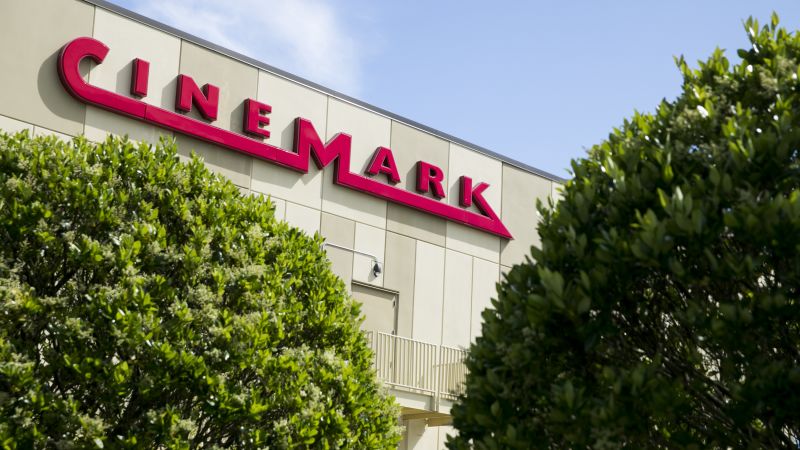Not even a beer at the movies is spared from shrinkflation, alleges a lawsuit against Cinemark. And one man is spearheading the fight against what he considers false advertising on his beer pour.
The proposed class-action suit, filed this week in a Texas federal court, claims that the theater chain’s 24-ounce drink cups can only hold a maximum of 22 ounces, purposely misleading customers.
According to the lawsuit, the lead plaintiff, Shane Waldrop, ordered a 24-ounce beer from a Texas Cinemark theater on Valentine’s Day this year and observed that the 24-ounce container did not seem large enough to hold 24 ounces of liquid. Waldrop then took the container home and measured it for himself, finding it only held 22 ounces, according to the lawsuit.
“This lawsuit is another example of consumers unwittingly overpaying for a supposed benefit they are not receiving,” Jarrett Ellzey, one of Waldrop’s attorneys said in a statement to CNN. “While two ounces may seem inconsequential to the seller, the bottom line is the buyer is not getting what he’s promised by the seller.”
The lawsuit claims Cinemark’s false advertising violates both state and federal laws.
CNN did not independently verify the size of Cinemark’s 24-ounce cups, and Cinemark did not respond to CNN’s request for comment.
Concessions are a major part of a movie theater’s business. For Cinemark’s most recent reported quarter, concession revenue climbed to $243 million, while admissions revenue was $322.2 million.
Rising prices seem to have boosted that revenue: Cinemark reported concession revenue for 2023 exceeded revenue in 2019 by 3%, even though movie attendance was 25% lower.
Waldrop’s lawsuit claims some of that revenue came through shortchanging customers. A 20-ounce drink at the Plano, Texas, Cinemark theater Waldrop visited costs $7.80 pre-tax, while a 24-ounce drink costs just $1 more, at $8.80.
“The 24 oz drink should provide a deal for consumers over the 20 oz drink’s price: $0.37 per ounce vs. $0.39 per ounce,” the lawsuit said. “But due to the actual volume of 22 oz available in the “24 oz” drink, the price is $0.40 per ounce making the larger drink more expensive per ounce, which is not a deal at all.”
During times of high inflation, some companies reduce the size of their products to cut costs rather than hiking prices. The practice, known as “shrinkflation,” has been in the spotlight recently as some packaged food brands faced accusations of quietly engaging in the practice.
OREO Double Stuf Chocolate Sandwich Cookies saw a 6% decrease in size by weight from January 2019 to October 2023, according to a report from Pennsylvania Democratic Sen. Bob Casey in December, using Labor Department data.
“Consumers are tired of not getting value for their hard-earned money while corporations get a windfall for providing an underperforming product or, as in this case, an incomplete product,” Ellzey said. “Though often misunderstood, class actions function as a device for changing business bad practices like this.”
– CNN’s Bryan Mena contributed to reporting.
Read the full article here
